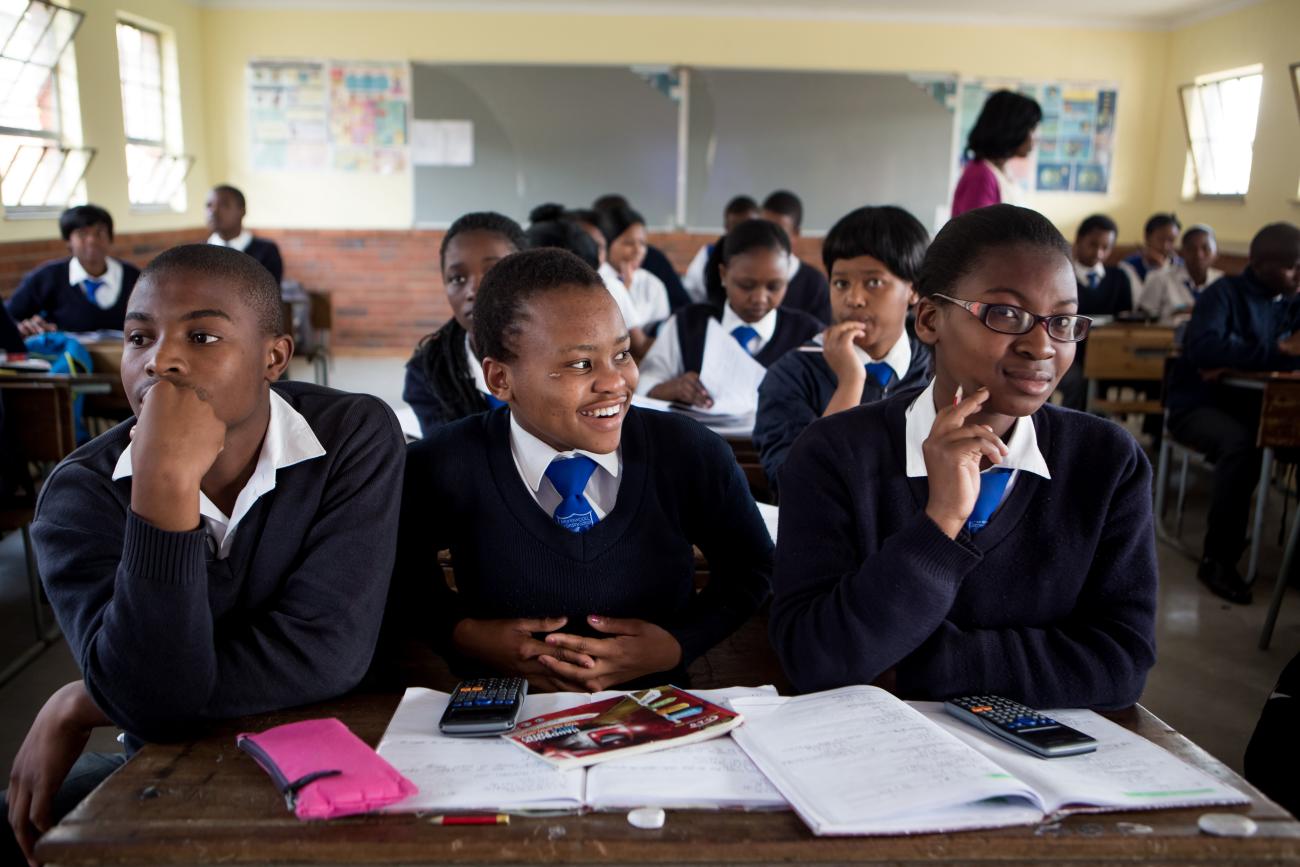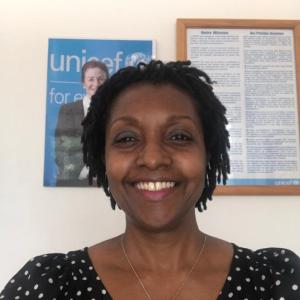By Dr. Agathe Lawson, Representative UNFPA South Africa, and Ms. Christine Muhigana, Representative, UNICEF South Africa,
Walking home from school in a village outside Mthatha in the Eastern Cape, 15-year-old Lindiwe* was attacked and raped by a man who emerged from the nearby bushes. This traumatic incident was reported by Lindiwe’s distraught mother to the local Chief and then to the closest police station. Upon discovering that Lindiwe was pregnant a few months after the rape, her family refused to have her terminate the pregnancy as this is against their religious beliefs. Lindiwe was forced to miss one year of schooling during her pregnancy and is today the mother of a little boy. Most concerning is that, two years later, Lindiwe and her family have given up on the arrest and conviction of the perpetrator.
Lindiwe’s story is sadly all too common in many parts of South Africa where girls and young women are sexually violated, and no-one is held responsible for such crimes. While the prevalence of this crime is still high, the low conviction rates of 8.6% on sexual violence crimes, as reported by South African Medical Research Council in 2017, point to a lack of accountability and justice.
Despite notable progress in the country, much more needs to be done to tackle gender-based violence (GBV) and to promote sexual and reproductive health and rights (SRHR) for adolescent girls and young women.
This is why the United Nations Population Fund (UNFPA), the United Nations Children’s Fund (UNICEF) and Global Affairs Canada have established a joint programme in the Eastern Cape and KwaZulu-Natal districts of uThukela, Alfred Nzo and Nelson Mandela focusing on empowering women and girls to fully realize their sexual and reproductive health and rights.
With a focus on decreasing discriminatory and harmful practices and attitudes that perpetuate sexual and gender-based violence against women and girls, the program aims to strengthen the capacity of the district-level health and social sectors and to ensure that non-discriminatory and age-appropriate SRH, HIV and GBV services and referrals for adolescent girls and young women (aged 15 to 24). As the funder of the programme, the Government of Canada, grounded in its Feminist International Assistance Policy, supports efforts to address and transform harmful behaviour that has negative consequences for all genders.
Before commencing with any implementation, however, it is vital to understand the actual situation on the ground. We therefore conducted a Study in the key districts of the Eastern Cape and KZN, between October 2020 and July 2021, to map out available services and to analyse prevalent knowledge, attitudes and practices on gender-based violence, sexual and reproductive health rights and HIV among adolescent girls and young women and their male counterparts as well as our government and civil society partners.
The study pointed out the need for strengthening the quality of services and resources while also highlighting the low levels of knowledge on GBV as well as the absence of Sexual Offences Courts in many rural districts. Furthermore, victim empowerment services, located at police stations, are limited in terms of both presence and budget.
The ‘rural-urban divide’ was also highlighted with one young woman in a rural area saying that she learns about GBV from community meetings organised by local NGOs, while in an urban district the youth participants reported that they learn about these issues mostly from television, social media and radio.
The study further noted that in one rural district only 2.8% of youth accessed services related to termination of pregnancy. Despite these services being available, a combination of traditional, cultural and religious beliefs often hinders the uptake of these services.
It is thus a collective effort as health, safety and social services work – as prescribed by the National Strategic Plan on GBV and Femicide together – so that cases like Lindiwe’s do not fall through the cracks.
If Lindiwe had approached a health facility immediately or visited a local Chief who had gone through the capacity building initiatives of this program, the outcome of the rape incident could have been different. She would then likely have been referred her to the relevant support services to access the necessary treatment, pregnancy prevention pills and other necessary medication. Her community could then have engaged the police station to pursue the investigation process and put pressure for an arrest of the suspect.
Lindiwe is hoping to complete her matric this year and to pursue a career in nursing. It has been a difficult journey for her and for too many other adolescent girls and young women. With programmes like this, we hope to make this journey an easier one.
*Not her real name
Dr. Agathe Lawson is the Representative of the UN Population Fund in South Africa and
Christine Muhigana is the Representative of UNICEF South Africa.
This op-ed first appeared in *** (which publication?)











